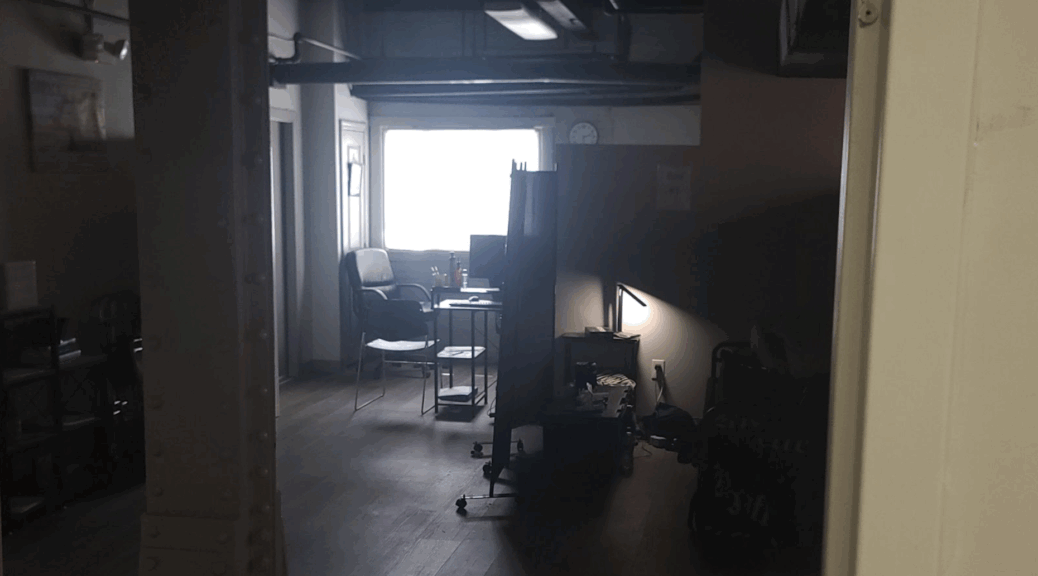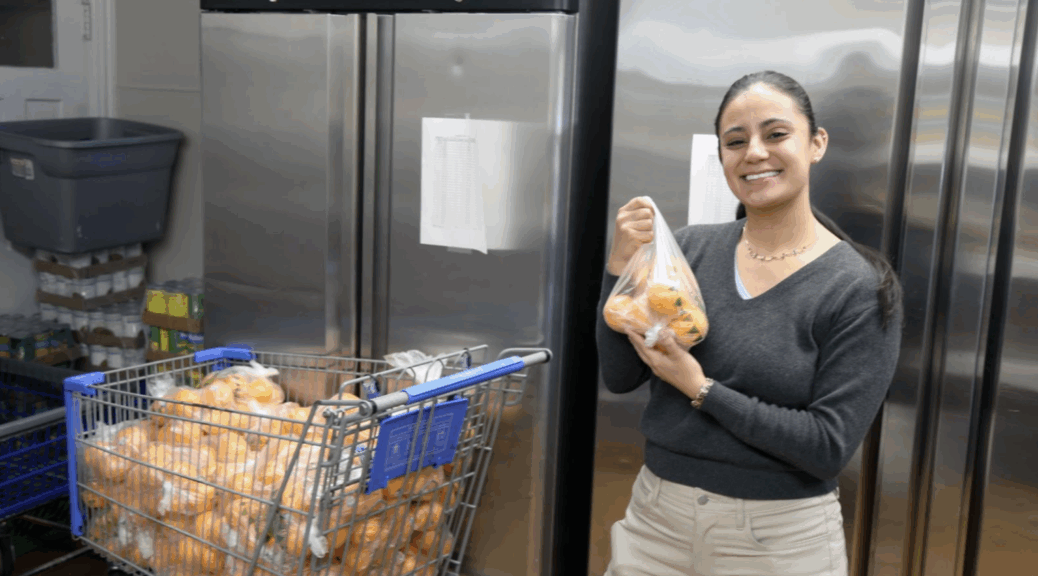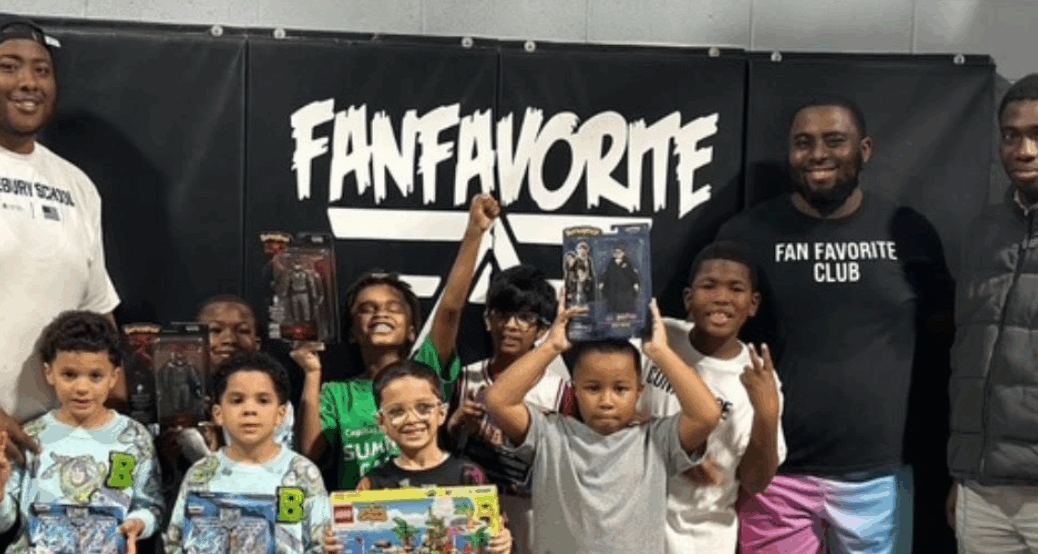By Rebecca Heath
Amy Flynn, Chief Executive Officer of the Trenton Area Soup Kitchen, first learned the importance of giving back while growing up food insecure on a dairy farm in the midwest.
“There were times when we didn’t have heat in our home except for a wood burning stove,” Flynn said in an interview with The Streetlight. “I can remember my mom just piling blankets on top of us at night, waking up in the morning and being able to see my breath.”
Despite their own struggles, Flynn said her family always found a way to support their neighbors, a common practice in her rural community that sparked her decades-long passion for service.
“We never had so little that we didn’t have something that we gave away,” she said. “Whether it was going to a neighboring family’s home to help because someone was sick. … . I can
remember our neighbors coming to help us in similar ways.”
Flynn said she has always been particularly inspired by her grandparents, who often brought her along to help neighbors in need as a child.
“Both of them were just so dedicated to giving back. They truly set the example for all of us in the family,” she said. “Even in service now so many of our friends and neighbors are just one paycheck away from experiencing, it could be homelessness, it could be going without a meal.”
Motivated by her upbringing, Flynn has dedicated her life and career to serving her community. Following nearly two decades of non-profit leadership, including a recent two-year tenure as the CEO of Meals on Wheels of Mercer County, Flynn officially took the helm of TASK in January. The long-standing organization provides meals daily and offers a variety of programs and services to people facing homelessness and food insecurity in Mercer County.
Flynn’s appointment at TASK followed the retirement of Joyce Campbell, who led the organization for eight years before announcing her plans to step down as CEO in May 2024.
As Flynn maps out her goals for her tenure, she said she aims to
“figure out how TASK can continue to be innovative in its approach to tackling the issue of food insecurity, and to engage and involve our community partners.”
“Joyce Campbell was a visionary leader of this organization, and so
I felt very fortunate,” Flynn said. “I’m standing on her shoulders right
now. I mean, she and the board and this amazing staff here have already built so much, and so it’s important to me to keep that momentum moving forward.”
As one of her initiatives, Flynn said she hopes to expand training programs at TASK, such as Emilio’s Culinary Academy. The program,
which is the only one of its kind in Mercer County, teaches culinary
skills to aspiring chefs for free, and helps them land jobs in professional kitchens.
“I think there’s a lot of opportunity to grow around that space,” Flynn said. “There’s lots of culinary training programs, but I think what
makes Emilio’s Culinary Academy stand out is it’s a really small group, a specialized approach. … We have students in the program that have a lot of barriers, and so what’s wonderful is that they have the benefit of our case management team around
them.”
Flynn said the success of the culinary academy has sparked “the potential for us to feed into other training and skills programs,” including workforce readiness and development initiatives.
“We know that there’s always going to be individuals that need the soup kitchen…but if we have the opportunity to help people lift out
of needing this type of support, to find meaningful employment that
has generational impact…that piece really excites me,” Flynn said.
In addition to serving patrons from its flagship Escher Street location, Flynn said TASK has expanded to various satellite locations across Mercer County, and recently celebrated the one year anniversary of launching its food truck.
“We’re working hard to be innovative and get out into communities, to individuals that can’t come to the soup kitchen,” Flynn said. “I think it takes all of us working together to kind of cover our community and surround the community, with care.”
Since starting her role, Flynn said she has met with various board
members, staff members, volunteers and community partners to better understand the barriers the organization is facing and how to effectively address them.
“There’s always going to be challenges, and there’s nobody better to learn from than the people that are on the front lines every day,” Flynn said.
With recent federal policies jeopardizing programs such as SNAP benefits and Medicaid, Flynn said TASK has been working to
ensure the organization can continue serving their patrons. She anticipates the demand for TASK’s services to increase while donations may decrease.
“That presents a layered challenge because we’re going to have to provide more food, with the same amount of resources that we have, or perhaps we’ll have more limited resources because more families are experiencing financial challenges,” she said.
As Flynn and her team navigate uncertainty, working to ensure
the organization has “long-term sustainability” remains their
“number one priority.”
“Obviously what would be wonderful is if we could put ourselves out of business, that nobody was hungry. But we know that that’s not going to be the case for a while,” she said.
Flynn said TASK will continue its efforts to “meet people where
they are,” and emphasized that food insecurity can affect anyone.
“I think it’s important for us to always understand that our neighbors, we have no idea what they might be going through, Flynn said. “It’s always important to me to pay it forward and give back.”






